- Home
- William Shakespeare
Henry V Page 9
Henry V Read online
Page 9
ORLEANS And I will take up108 that with 'Give the devil his due.'
CONSTABLE Well placed: there stands your friend for the devil.
Have at the very eye110 of that proverb with 'A pox of the devil.'
ORLEANS You are the better at proverbs, by how much 'A
fool's bolt112 is soon shot.'
CONSTABLE You have shot over.113
ORLEANS 'Tis not the first time you were overshot.114
Enter a Messenger
MESSENGER My lord high constable, the English lie within fifteen
hundred paces of your tents.
CONSTABLE Who hath measured the ground?
MESSENGER The lord Grandpre.
CONSTABLE A valiant and most expert gentleman. Would it
were day! Alas, poor Harry of England: he longs not for the
dawning as we do.
ORLEANS What a wretched and peevish122 fellow is this king of
England, to mope123 with his fat-brained followers so far out of
his knowledge!
CONSTABLE If the English had any apprehension125, they would
run away.
ORLEANS That they lack, for if their heads had any intellectual
armour, they could never wear such heavy head-pieces.128
RAMBURES That island of England breeds very valiant
creatures; their mastiffs130 are of unmatchable courage.
ORLEANS Foolish curs, that run131 winking into the mouth of a
Russian bear and have their heads crushed like rotten
apples. You may as well say, that's a valiant flea that dare eat133
his breakfast on the lip of a lion.
CONSTABLE Just, just. And the men do sympathize with the
mastiffs in robustious136 and rough coming on, leaving their
wits with their wives, and then give137 them great meals of beef
and iron and steel; they will eat like wolves and fight like
devils.
ORLEANS Ay, but these English are shrewdly140 out of beef.
CONSTABLE Then shall we find tomorrow they have only
stomachs142 to eat and none to fight. Now is it time to arm.
Come, shall we about it?
ORLEANS It is now two o'clock, but let me see, by ten
We shall have each a hundred Englishmen.
Exeunt
[Act 4]
[Enter] Chorus
CHORUS
Now entertain1 conjecture of a time
When creeping murmur2 and the poring dark
Fills the wide vessel of the universe.
From camp to camp through the foul4 womb of night
The hum of either army stilly5 sounds,
That the fixed sentinels almost receive
The secret whispers of each other's watch.
Fire answers fire, and through their paly8 flames
Each battle sees the other's umbered9 face.
Steed threatens steed, in high and boastful neighs
Piercing the night's dull ear, and from the tents,
The armourers, accomplishing12 the knights,
With busy hammers closing rivets13 up,
Give dreadful note14 of preparation.
The country cocks do crow, the clocks do toll,
And the third hour of drowsy morning name.
Proud of their numbers and secure17 in soul,
The confident and over-lusty18 French
Do the low-rated19 English play at dice;
And chide20 the cripple tardy-gaited night,
Who like a foul and ugly witch doth limp
So tediously22 away. The poor condemned English,
Like sacrifices, by their watchful fires
Sit patiently and inly24 ruminate
The morning's danger, and their gesture sad25
Investing26 lank-lean cheeks and war-worn coats
Presented them unto the gazing moon
So many horrid ghosts. O, now, who28 will behold
The royal captain of this ruined band
Walking from watch30 to watch, from tent to tent,
Let him cry 'Praise and glory on his head!'
For forth he goes and visits all his host32,
Bids them good morrow with a modest smile
And calls them brothers, friends and countrymen.
Upon his royal face there is no note35
How dread an army hath enrounded36 him;
Nor doth he dedicate37 one jot of colour
Unto the weary and all-watched38 night,
But freshly looks and over-bears39 attaint
With cheerful semblance40 and sweet majesty,
That every wretch, pining41 and pale before,
Beholding him, plucks comfort from his looks.
A largess43 universal like the sun
His liberal44 eye doth give to every one,
Thawing cold fear, that mean and gentle all45,
Behold, as may unworthiness46 define,
A little touch47 of Harry in the night.
And so our scene must to the battle fly,
Where -- O, for pity! -- we shall much disgrace
With four or five most vile and ragged50 foils,
Right ill-disposed51 in brawl ridiculous,
The name of Agincourt. Yet sit and see,
Minding53 true things by what their mock'ries be.
Exit
[Act 4 Scene 1]
running scene 10
Enter the King, Bedford and Gloucester
KING HENRY V Gloucester, 'tis true that we are in great danger,
The greater therefore should our courage be.--
Good morrow, brother Bedford. God Almighty!
There is some soul of goodness in things evil,
Would men5 observingly distil it out.
For our bad neighbour makes us early stirrers6,
Which is both healthful and good husbandry.7
Besides, they are our outward consciences
And preachers to us all, admonishing
That we should dress us10 fairly for our end.
Thus may we gather honey from the weed11,
And make a moral of12 the devil himself.--
Enter Erpingham
Good morrow, old Sir Thomas Erpingham:
A good soft pillow for that good white head
Were better than a churlish15 turf of France.
ERPINGHAM Not so, my liege. This lodging likes16 me better,
Since I may say 'Now lie I like a king.'
KING HENRY V 'Tis good for men to love their present pains
Upon example19, so the spirit is eased:
And when the mind is quickened20, out of doubt,
The organs, though defunct and dead before,
Break up22 their drowsy grave and newly move
With casted slough23 and fresh legerity.
Lend me thy cloak, Sir Thomas. Brothers both,
Commend me25 to the princes in our camp;
Do my good morrow to them, and anon26
Desire them all to my pavilion.27
GLOUCESTER We shall, my liege.
ERPINGHAM Shall I attend your grace?
KING HENRY V No, my good knight.
Go with my brothers to my lords of England:
Covers himself with Erpingham's cloak
I and my bosom32 must debate awhile
And then I would no other company.
ERPINGHAM The Lord in heaven bless thee, noble Harry!
Exeunt [all but King Henry]
KING HENRY V God-a-mercy, old heart! Thou speak'st cheerfully.
Enter Pistol
PISTOL Che vous la?36
KING HENRY V A friend.
PISTOL Discuss38 unto me: art thou officer?
Or art thou base, common and popular?39
KING HENRY V I am a gentleman of a company.40
PISTOL Trail'st thou the puissant pike?41
KING HENRY V Even so.42 What are you?
PISTOL As good a gentleman as the emperor.
KING HENRY V Then you are a better than the king.
PISTOL The king's a bawcock45, and a heart of gold,
A lad of life, an imp46 of fame,
Of parents good, of fist most valiant.
I kiss his dirty shoe and from heartstring
I love the lovely bully.49 What is thy name?
KING HENRY V Harry le Roy.50
PISTOL Le Roy? A Cornish name: art thou of Cornish crew?51
KING HENRY V No, I am a Welshman.
PISTOL Know'st thou Fluellen?
KING HENRY V Yes.
PISTOL Tell him I'll knock his leek about his pate55
Upon Saint Davy's day.56
KING HENRY V Do not you wear your dagger in your cap that day,
lest he knock that about yours.
PISTOL Art thou his friend?
KING HENRY V And his kinsman too.
PISTOL The figo for thee, then!
KING HENRY V I thank you. God be with you!
PISTOL My name is Pistol called.
Exit. The King remains [and stands aside]
KING HENRY V It sorts64 well with your fierceness.
Enter Fluellen and Gower
GOWER Captain Fluellen!
FLUELLEN So, in the name of Jesu Christ, speak fewer.66 It is the
greatest admiration67 in the universal world, when the true
and aunchient prerogatifes68 and laws of the wars is not kept:
if you would take the pains but to examine the wars of
Pompey the Great70, you shall find, I warrant you, that there is
no tiddle taddle nor pibble babble71 in Pompey's camp. I
warrant you, you shall find the ceremonies72 of the wars, and
the cares73 of it, and
the forms of it, and the sobriety of it, and
the modesty74 of it, to be otherwise.
GOWER Why, the enemy is loud. You hear him all night.
FLUELLEN If the enemy is an ass and a fool and a prating76
coxcomb77, is it meet, think you, that we should also, look you,
be an ass and a fool and a prating coxcomb, in your own
conscience, now?
GOWER I will speak lower.
FLUELLEN I pray you and beseech you that you will.
Exeunt [Gower and Fluellen]
KING HENRY V Though it appear a little out of fashion,
There is much care83 and valour in this Welshman.
Enter three soldiers: John Bates, Alexander Court and Michael Williams
COURT Brother John Bates, is not that the morning which
breaks yonder?
BATES I think it be. But we have no great cause to desire
the approach of day.
WILLIAMS We see yonder the beginning of the day, but I think
we shall never see the end of it.-- Who goes there?
KING HENRY V A friend.
WILLIAMS Under what captain serve you?
KING HENRY V Under Sir Thomas Erpingham.
WILLIAMS A good old commander and a most kind gentleman.
I pray you, what thinks he of our estate?94
KING HENRY V Even as men wrecked95 upon a sand, that look to be
washed off the next tide.
BATES He hath not told his thought to the king?
KING HENRY V No, nor it is not meet he should. For, though I98
speak it to you, I think the king is but a man, as I am: the
violet smells to him as it doth to me: the element100 shows to
him as it doth to me; all his senses have but human
conditions102, his ceremonies laid by, in his nakedness he
appears but a man; and though his affections103 are higher
mounted than ours, yet, when they stoop104, they stoop with
the like wing.105 Therefore, when he sees reason of fears, as we
do, his fears, out of doubt, be of the same relish106 as ours are.
Yet, in reason, no man should possess him with107 any
appearance of fear, lest he108, by showing it, should dishearten
his army.
BATES He may show what outward courage he will, but I
believe, as cold a night as 'tis, he could wish himself in
Thames112 up to the neck; and so I would he were, and I by him,
at all adventures113, so we were quit here.
KING HENRY V By my troth, I will speak my conscience of the
king: I think he would not wish himself anywhere but where
he is.
BATES Then I would he were here alone; so should he be
sure to be ransomed, and a many poor men's lives saved.
KING HENRY V I dare say you love him not so ill to wish him here
alone, howsoever you speak this to feel120 other men's minds.
Methinks I could not die anywhere so contented as in the
king's company; his cause being just and his quarrel
honourable.
WILLIAMS That's more than we know.
BATES Ay, or more than we should seek after125; for we know
enough, if we know we are the king's subjects. If his cause be
wrong, our obedience to the king wipes the crime of it out
of us.
WILLIAMS But if the cause be not good, the king himself hath
a heavy reckoning130 to make, when all those legs and arms
and heads, chopped off in a battle, shall join together131 at the
latter day132 and cry all, 'We died at such a place' -- some
swearing, some crying for a surgeon, some upon133 their wives
left poor behind them, some upon the debts they owe, some
upon their children rawly135 left. I am afeard there are few die
well that die in a battle, for how can they charitably136 dispose
of anything, when blood is their argument?137 Now, if these
men do not die well, it will be a black matter for the king that
led them to it -- who to disobey were against all proportion139
of subjection.140
KING HENRY V So, if a son that is by his father sent about
merchandise142 do sinfully miscarry upon the sea, the
imputation of his wickedness, by your rule, should be
imposed upon his father that sent him. Or if a servant, under
his master's command transporting a sum of money, be
assailed by robbers and die in many irreconciled146 iniquities,
you may call the business of the master the author147 of the
servant's damnation. But this is not so: the king is not bound
to answer the particular endings of his soldiers, the father of
his son, nor the master of his servant; for they purpose150 not
their death, when they purpose their services. Besides, there
is no king, be his cause never so spotless, if it come to the
arbitrement of swords153, can try it out with all unspotted
soldiers: some peradventure154 have on them the guilt of
premeditated and contrived murder; some, of beguiling155
virgins with the broken seals of perjury156; some, making the
wars their bulwark157, that have before gored the gentle bosom
of peace with pillage and robbery. Now, if these men have
defeated the law and outrun native punishment159, though
they can outstrip men, they have no wings to fly from God.
War is his beadle161, war is his vengeance, so that here men are
punished for before-breach162 of the king's laws in now the
king's quarrel. Where they feared the death163, they have borne
life away; and where they would be safe, they perish. Then if
they die unprovided165, no more is the king guilty of their
damnation than he was before guilty of those impieties for
the which they are now visited.167 Every subject's duty is the
k
ing's, but every subject's soul is his own. Therefore should
every soldier in the wars do as every sick man in his bed,
wash every mote out of his conscience, and dying so, death
is to him advantage; or not dying, the time was blessedly171 lost
wherein such preparation was gained. And in him that
escapes, it were not sin to think that, making God so free an173
offer, he let him outlive that day to see his greatness and to
teach others how they should prepare.175
WILLIAMS 'Tis certain, every man that dies ill176, the ill upon his
own head, the king is not to answer it.177
BATES But I do not desire he should answer for me, and yet
I determine to fight lustily179 for him.
KING HENRY V I myself heard the king say he would not be
ransomed.
WILLIAMS Ay, he said so, to make us fight cheerfully. But when
our throats are cut, he may be ransomed, and we ne'er the
wiser.
KING HENRY V If I live to see it185, I will never trust his word after.
WILLIAMS You pay186 him then. That's a perilous shot out of an
elder-gun187, that a poor and a private displeasure can do
against a monarch. You may as well go about188 to turn the sun
to ice with fanning in his face with a peacock's feather. You'll
never trust his word after! Come, 'tis a foolish saying.
KING HENRY V Your reproof is something too round.191 I should be
angry with you, if the time were convenient.
WILLIAMS Let it be a quarrel between us, if you live.
KING HENRY V I embrace194 it.
WILLIAMS How shall I know thee again?
KING HENRY V Give me any gage196 of thine, and I will wear it in my
bonnet197: then, if ever thou darest acknowledge it, I will make
it my quarrel.
WILLIAMS Here's my glove. Give me another of thine.
KING HENRY V There.
They exchange gloves
WILLIAMS This will I also wear in my cap. If ever thou
come to me and say, after tomorrow, 'This is my glove', by
this hand, I will take203 thee a box on the ear.
KING HENRY V If ever I live to see it, I will challenge it.
WILLIAMS Thou dar'st as well be hanged.
KING HENRY V Well, I will do it, though206 I take thee in the king's
company.
WILLIAMS Keep thy word. Fare thee well.
BATES Be friends, you English fools, be friends. We have
French quarrels enough, if you could tell how to reckon.210
Exeunt Soldiers
KING HENRY V Indeed, the French may lay twenty French
crowns212 to one, they will beat us; for they bear them on their
shoulders. But it is no English treason to cut French crowns213,
and tomorrow the king himself will be a clipper.214
Upon the king! Let us our lives, our souls,
Our debts, our careful216 wives,
Our children and our sins lay on217 the king!
We must bear all. O, hard condition218,
Twin-born219 with greatness, subject to the breath

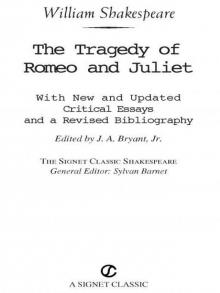 Romeo and Juliet
Romeo and Juliet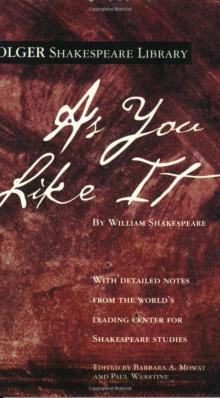 As You Like It (Folger Shakespeare Library)
As You Like It (Folger Shakespeare Library)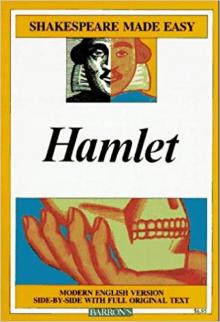 Hamlet
Hamlet Richard II (Folger Shakespeare Library)
Richard II (Folger Shakespeare Library) Macbeth
Macbeth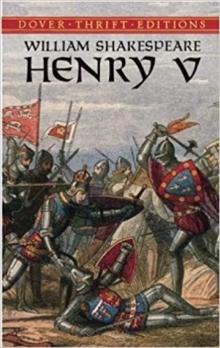 Henry V
Henry V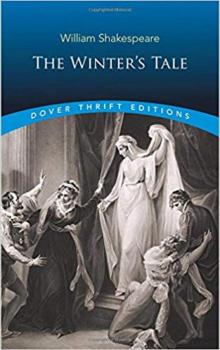 The Winter's Tale
The Winter's Tale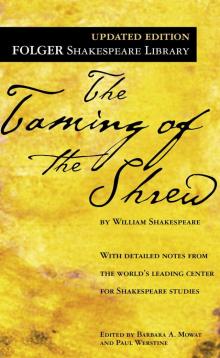 The Taming of the Shrew
The Taming of the Shrew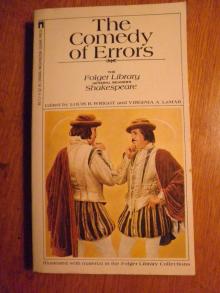 The Comedy of Errors
The Comedy of Errors King Lear (Folger Shakespeare Library)
King Lear (Folger Shakespeare Library)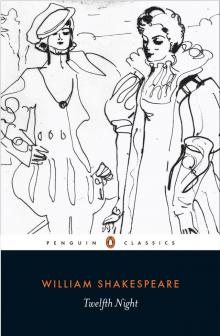 Twelfth Night
Twelfth Night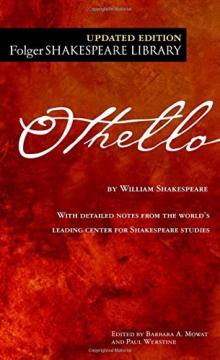 Othello
Othello The Two Gentlemen of Verona
The Two Gentlemen of Verona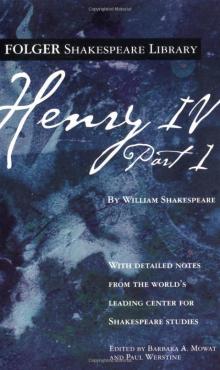 Henry IV, Part 1 (Folger Shakespeare Library)
Henry IV, Part 1 (Folger Shakespeare Library)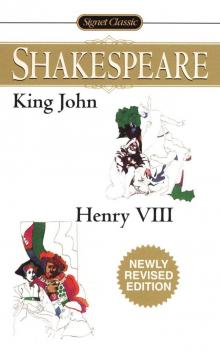 King John/Henry VIII (Signet Classics)
King John/Henry VIII (Signet Classics)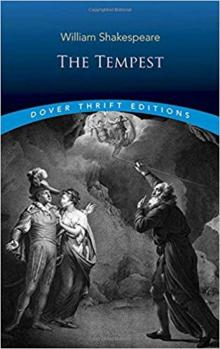 The Tempest
The Tempest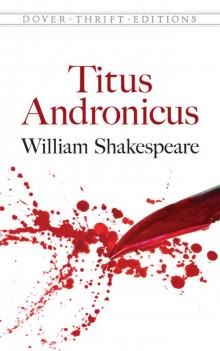 Titus Andronicus (Dover Publications)
Titus Andronicus (Dover Publications)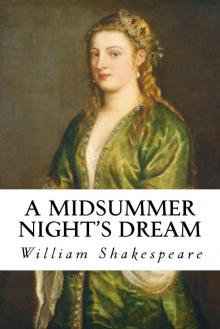 A Midsummer Night's Dream
A Midsummer Night's Dream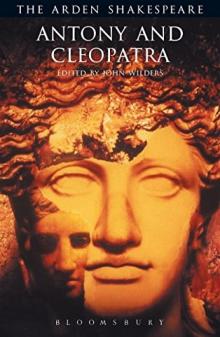 Antony and Cleopatra (Arden Shakespeare: Third Series)
Antony and Cleopatra (Arden Shakespeare: Third Series)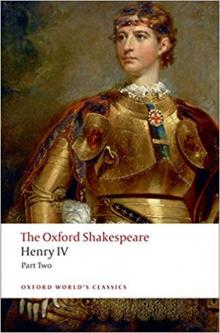 The Oxford Shakespeare: Henry IV, Part 2 (Oxford World's Classics)
The Oxford Shakespeare: Henry IV, Part 2 (Oxford World's Classics)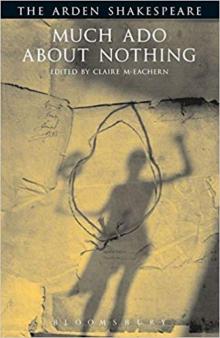 Much Ado About Nothing (Arden Shakespeare: Third Series)
Much Ado About Nothing (Arden Shakespeare: Third Series)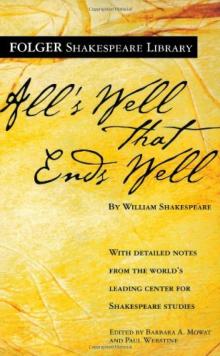 All's Well That Ends Well
All's Well That Ends Well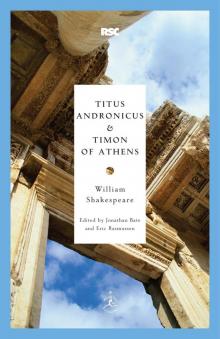 Titus Andronicus & Timon of Athens
Titus Andronicus & Timon of Athens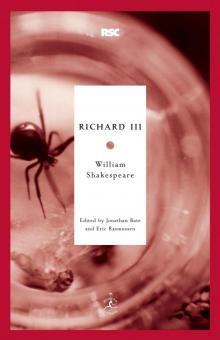 Richard III (Modern Library Classics)
Richard III (Modern Library Classics) Coriolanus
Coriolanus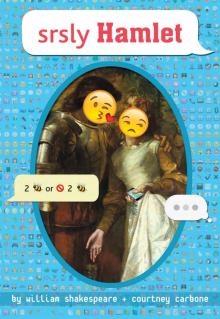 srsly Hamlet (OMG Shakespeare)
srsly Hamlet (OMG Shakespeare)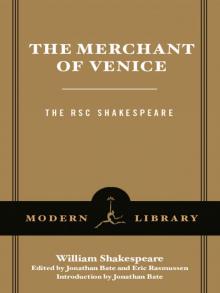 The Merchant of Venice
The Merchant of Venice Richard III
Richard III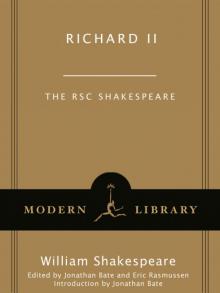 Richard II
Richard II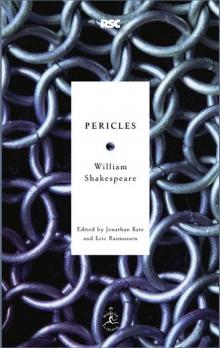 Pericles
Pericles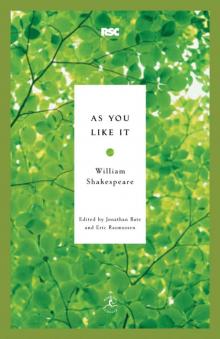 As You Like It
As You Like It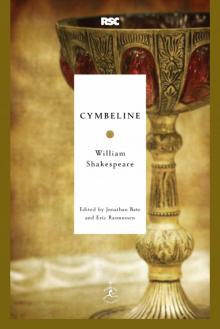 Cymbeline
Cymbeline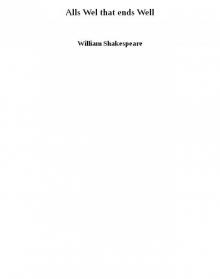 Alls Wel that ends Well
Alls Wel that ends Well YOLO Juliet
YOLO Juliet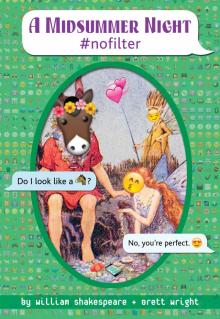 A Midsummer Night #nofilter
A Midsummer Night #nofilter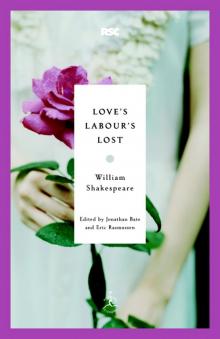 Love's Labour's Lost
Love's Labour's Lost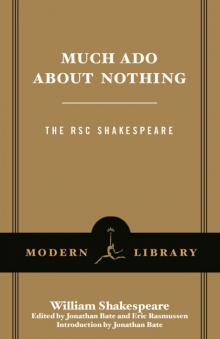 Much Ado About Nothing
Much Ado About Nothing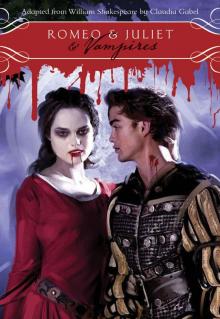 Romeo & Juliet & Vampires
Romeo & Juliet & Vampires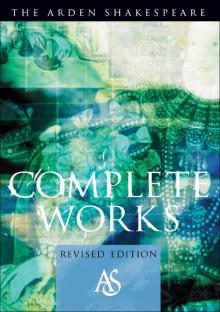 The Arden Shakespeare Complete Works
The Arden Shakespeare Complete Works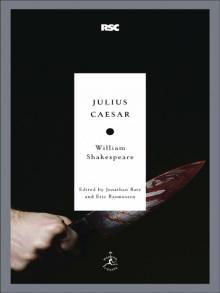 Julius Caesar
Julius Caesar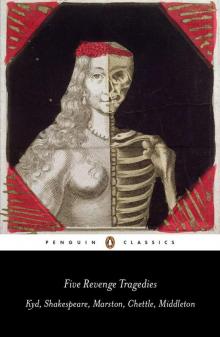 Five Revenge Tragedies: The Spanish Tragedy, Hamlet, Antonio's Revenge, The Tragedy of Hoffman, The Revenger's Tragedy (Penguin Classics)
Five Revenge Tragedies: The Spanish Tragedy, Hamlet, Antonio's Revenge, The Tragedy of Hoffman, The Revenger's Tragedy (Penguin Classics)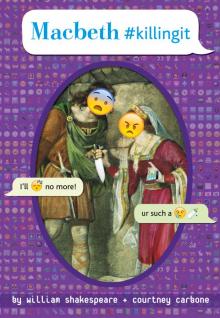 Macbeth #killingit
Macbeth #killingit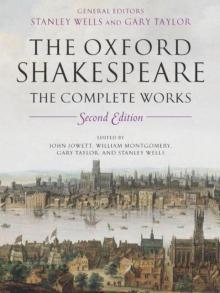 The Oxford Shakespeare: The Complete Works
The Oxford Shakespeare: The Complete Works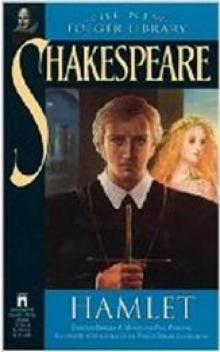 Hamlet, Prince of Denmark (Collins edition)
Hamlet, Prince of Denmark (Collins edition)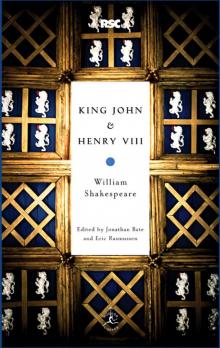 King John & Henry VIII
King John & Henry VIII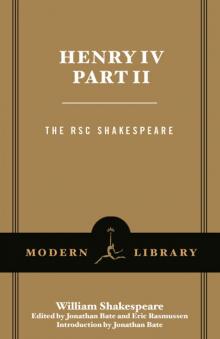 Henry IV, Part 2
Henry IV, Part 2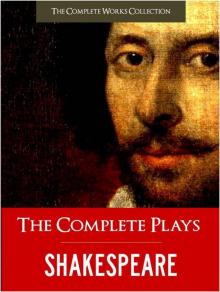 Complete Plays, The
Complete Plays, The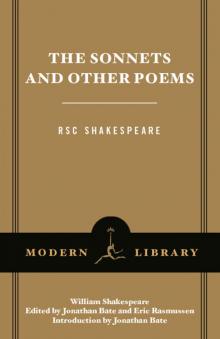 The Sonnets and Other Poems
The Sonnets and Other Poems Antony and Cleopatra
Antony and Cleopatra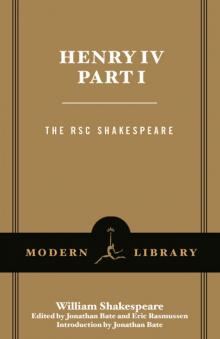 Henry IV, Part 1
Henry IV, Part 1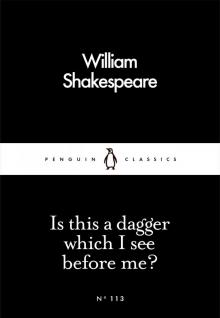 Is This a Dagger Which I See Before Me?
Is This a Dagger Which I See Before Me?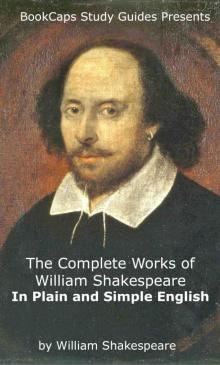 The Complete Works of William Shakespeare In Plain and Simple English (Translated)
The Complete Works of William Shakespeare In Plain and Simple English (Translated)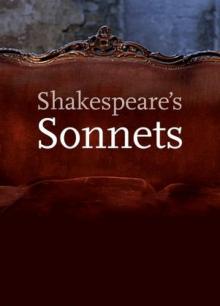 The Sonnets
The Sonnets